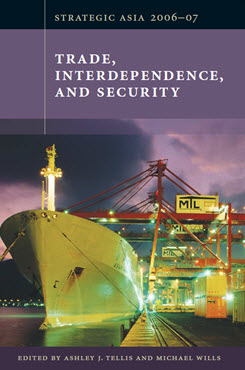The Superpower as Super-Debtor
Implications of Economic Disequilibria for U.S.-Asian Relations
This chapter examines why the ongoing refusal of the United States to live within its economic means poses challenges to U.S. domestic prosperity, dilutes U.S. credibility as a global superpower, and elevates U.S.-East Asian economic interdependence to uncharted levels of complexity.
EXECUTIVE SUMMARY
This chapter examines why the ongoing refusal of the United States to live within its economic means poses challenges to U.S. domestic prosperity, dilutes U.S. credibility as a global superpower, and elevates U.S.-East Asian economic interdependence to uncharted levels of complexity.
MAIN ARGUMENT
- Having accumulated so much external debt for so long, the U.S. is at – if not already beyond – the boundaries of prudent economic behavior. A paradox of American “exceptionalism” is that this situation reflects both U.S. weakness and strength.
- Several Asian countries have become supercreditors due to over-reliance on exports to the U.S. market and under-reliance on internal growth. The compulsion of these countries to export and the U.S. craving for imports are complementary excesses. Imprudent dependence on a ballooning global balance of payments disequilibrium has created a precarious interdependence between the super-debtor and its Asian super-creditors.
- Though the likelihood of an economic crisis caused by a rapid depreciation of the dollar is neither inevitable nor imminent, the danger is credible enough that governments should be taking the situation more seriously.
POLICY IMPLICATIONS
- The ability of the U.S. to endure the financial burdens of being the world’s sole superpower depends on “good” macroeconomic policy, a system that encourages innovation and the entrepreneurial spirit, a capacity for self-reinvention, and efficient capital markets.
- By relying excessively on debt, the U.S. government has effectively abdicated short- to medium-term control over the dollar’s value to the mostly Asian super-creditors and profit-seeking speculators everywhere.
- Washington has not yet allowed U.S. gratitude for the roles that Asian super-creditors play in stabilizing the dollar’s exchange rate to influence U.S. security policy relating to Asia. Less U.S. dependence on external borrowing would preserve the firewall separating economic and security issues.
Strategic Asia
The Strategic Asia annual edited volume incorporates assessments of economic, political, and military trends and focuses on the strategies that drive policy in the region. Learn more about Strategic Asia.



